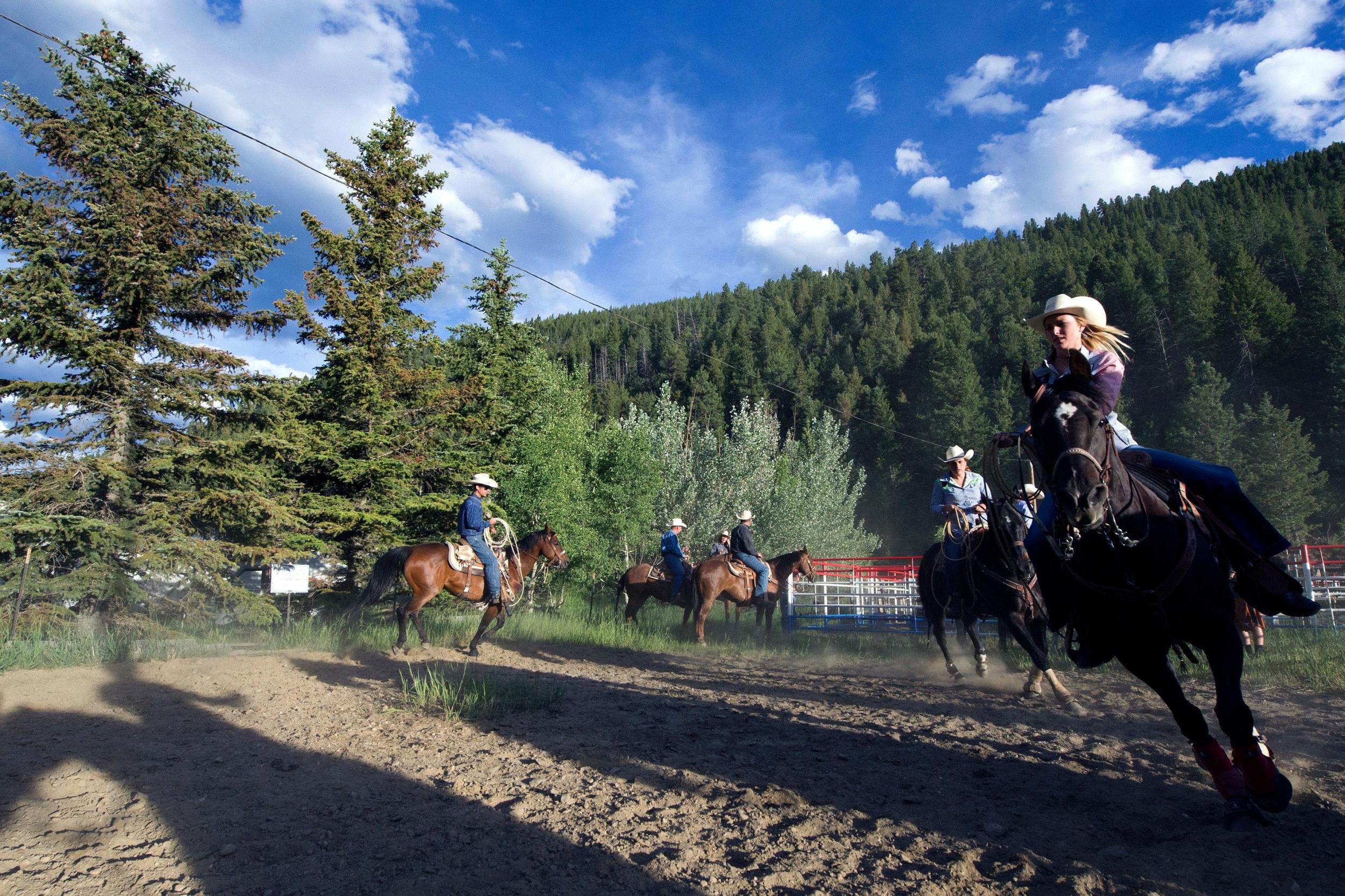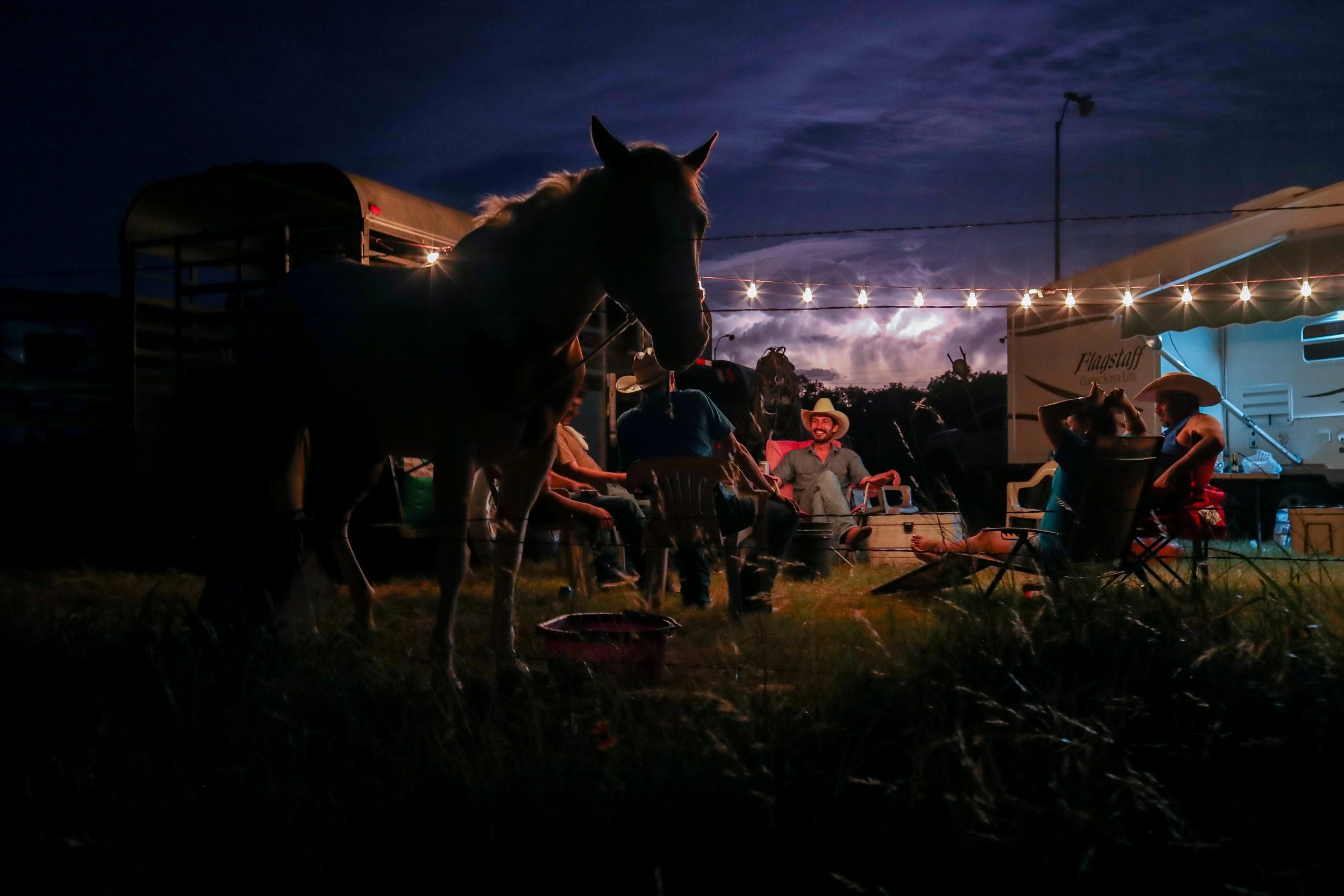Rise of the American cowgirl: How women have reclaimed their connection to the land
With men leaving ranching for less gritty work, women are increasingly taking up the slack – and challenging traditional ideas about the profession. Amy Chozick reports

Your support helps us to tell the story
From reproductive rights to climate change to Big Tech, The Independent is on the ground when the story is developing. Whether it's investigating the financials of Elon Musk's pro-Trump PAC or producing our latest documentary, 'The A Word', which shines a light on the American women fighting for reproductive rights, we know how important it is to parse out the facts from the messaging.
At such a critical moment in US history, we need reporters on the ground. Your donation allows us to keep sending journalists to speak to both sides of the story.
The Independent is trusted by Americans across the entire political spectrum. And unlike many other quality news outlets, we choose not to lock Americans out of our reporting and analysis with paywalls. We believe quality journalism should be available to everyone, paid for by those who can afford it.
Your support makes all the difference.Hundreds of years before John Wayne and Gary Cooper gave us a Hollywood version of the American West, with men as the brute, weather-beaten stewards of the land, female ranchers roamed the frontier. They were the indigenous, Navajo, Cheyenne and other tribes, and Spanish-Mexican rancheras, who tended and tamed vast fields, traversed rugged landscapes with their dogs, hunted, and raised livestock.
The descendants of European settlers brought with them ideas about the roles of men and women, and for decades, family farms and ranches were handed down to men.
Now, as mechanisation and technology transform the ranching industry, making the job of cowboy less about physical strength – though female ranchers have that in spades – and more about business, animal husbandry and the environment, women have reclaimed their connection to the land.
At the same time, the brothers, sons and grandsons who would have historically inherited a family ranch have, in the last decade, opted to pursue less gritty work. As a result, in 2012, 14 per cent of the nation’s 2.1 million farms had a female proprietor, according to the United States Department of Agriculture.
That ratio may rise, as over half the farms and ranches in the United States are expected to change hands over the next 20 years. Growing up on her family’s ranch in Kremmling, Colorado, Caitlyn Taussig watched her mother do all the cooking and housework even as she helped tend to the cattle and horses. Today, Taussig, 32, helps to run the ranch with a cadre of cowgirls, including her mother and sister. They only really rely on men on the days when they have to brand the Angus Cross cattle.
“We just sort of treat each other differently,” Taussig says shortly after a cow kicks a gate that splits open her forehead. She gets six stitches and is back at work that afternoon. “There’s less ego.”
Against the vast blue skies and craggy prairies, female ranchers have found the same independence and adventure that first lured their male antecedents, but they are also forging a new path. Women are leading the trend of sustainable ranching and raising grass-fed breeds of cattle in humane, ecological ways.
On the west bank of the Missouri River in north central South Dakota, Kelsey Ducheneaux, 25, raises sustainable beef on the land that generations of the Lakota Nation have worked. “We believe that we can only be as sovereign as a nation as we are in our food systems,” she says.
For Native Americans, the concept of women working the family ranch isn’t revolutionary, but a return to the natural order. Ducheneaux attended South Dakota State University and had planned to work on the 7,500 acres of tribally leased land that she had grown up on, but it wasn’t until her grandmother died that she understood the importance of the role of women on the ranch.
“She was the actual rock of the family,” she says. “That’s how Lakota families are. We are a matriarchal society, always have been.”
Beth Robinette, 31, is the fourth-generation owner and operator of the Lazy R Ranch in Cheney, Washington. She runs New Cowgirl Camp, a five-day course that trains women in animal husbandry, ranch management, financial planning, ecological monitoring and regenerative grazing.

Robinette recoils at the gaudy, country-pop version of the overly feminised cowgirl, and calls her program a “rhinestone-free zone”.
“Our current generation of land managers is aging out of that role,” she says. “You could look at that as a disaster, or you could really look at that as an opportunity to change the paradigm.”
Cory Carman, 39, thought she’d spend just a summer working on her family’s ranch in Wallowa, Oregon, but she has parlayed her parents’ prairie into a leading local provider of grass-fed beef. “I had a certain period of feeling a little bit angry about the challenges of not being taken seriously,” says Carman, a Stanford graduate. “The number of times that I’ve walked into a meeting and people are like, ‘You don’t look like a rancher.’”
But the same judgement also proved liberating, as female ranchers like Carman redefined the job. “If I don’t look like a rancher,” she says, “I don’t have to act like one all the time, right?”
This reimagining of a role that has for so long loomed large – and male – in the American imagination hasn’t come without conflict. When Amy Eller, 33, first took on a major role on her family’s ranch after her brother had less interest, she clashed with her father about how to treat the livestock.
“He’s like, ‘Oh, you’re wasting your time putting that hay in there.’ And I’m thinking, it calms them down,” she says of a recent conversation with her father. Today, three generations of Eller women work on the ranch. When her young daughter, Wendy, was a baby, Eller would strap a car seat into a tractor and take her to feed the cows.
Maybe it’s because women can finally feel the freedom of the American West in a way men have long romanticised, but Eller says there is just something different, spiritual even, about women working the land together. “If the tractor breaks down, I’m like, ‘Oh, I’m thankful my dad is here.’ But when it comes to everyday work, like feeding the cows, I would much rather go with my mom, because we can actually enjoy it,” she says.
“We’ll both say, ‘Oh, isn’t this beautiful out here today?’ We notice how beautiful it is when the sun’s shining on the snow.”
© New York Times
Join our commenting forum
Join thought-provoking conversations, follow other Independent readers and see their replies
Comments